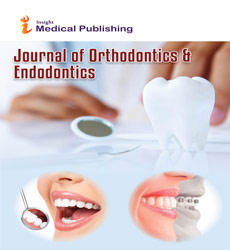Editorial on Health Behavior Change Conversations in Dental Care Setting
Sanika Swapna
DOI10.36648/2469-2980.21.7.e12
Department of Biotechnology, Osmania University, Hyderabad, Telangana, India
- Corresponding Author:
- Sanika Swapna
Department of Biotechnology
Osmania University, Hyderabad, Telangana, India
E-mail: sainika.swapna5@gmail.com
Received Date: March 26, 2021; Accepted Date: March 27, 2021; Published Date: March 29, 2021
Citation: Swapna S (2021) Editorial on Health Behavior Change Conversations in Dental Care Settings. J Orthod Endod. Vol. 7 No.3:12
Editorial
Health behaviors finish in oral health issues. Behavior modification techniques, au courant by behavior science, area unit seldom used by care professionals (DCPs) inside routine care. Aim To develop a theory-informed intervention to support DCPs' behavior modification conversations and valuate its practicability and acceptableness. Intervention a behavior modification toolkit (Toothpicks) comprising thirty three behavior modification techniques relevant to medicine, delivered inside associate degree interactive on-line course. Design Development and mixedmethods analysis of the intervention. Participants' motivation to discussion behavior modification with patients was measured before and when coaching using a valid form. Acceptableness was assessed through semi-structured interviews. DCPs' (N = 32) motivation enlarged considerably post-training. Participants found the coaching acceptable and according afterwards implementing techniques into their observe. Potential barriers preventing implementation to clinical observe embody perceived lack of opportunities to result modification inside the constraints of the clinical context.
Acceptable theory-informed coaching that is acceptable and accessible area unit typically developed that will increase DCPs' motivation to discussion behavior modification with patients. any analysis is vital to work out the longer-term impact of temporary behavior modification coaching on DCPs' clinical observe and patient health behaviors. Aid practitioners' motivation to move in behavior modification conversations enlarged following online coaching in behavior modification techniques. They found the coaching acceptable and according samples of mistreatment it inside their clinical observe. Theory-informed behavior modification coaching is feasible and acceptable however changes area unit required to the clinical setting to form positive practitioners grade preventative conversations.
Open Access Journals
- Aquaculture & Veterinary Science
- Chemistry & Chemical Sciences
- Clinical Sciences
- Engineering
- General Science
- Genetics & Molecular Biology
- Health Care & Nursing
- Immunology & Microbiology
- Materials Science
- Mathematics & Physics
- Medical Sciences
- Neurology & Psychiatry
- Oncology & Cancer Science
- Pharmaceutical Sciences
